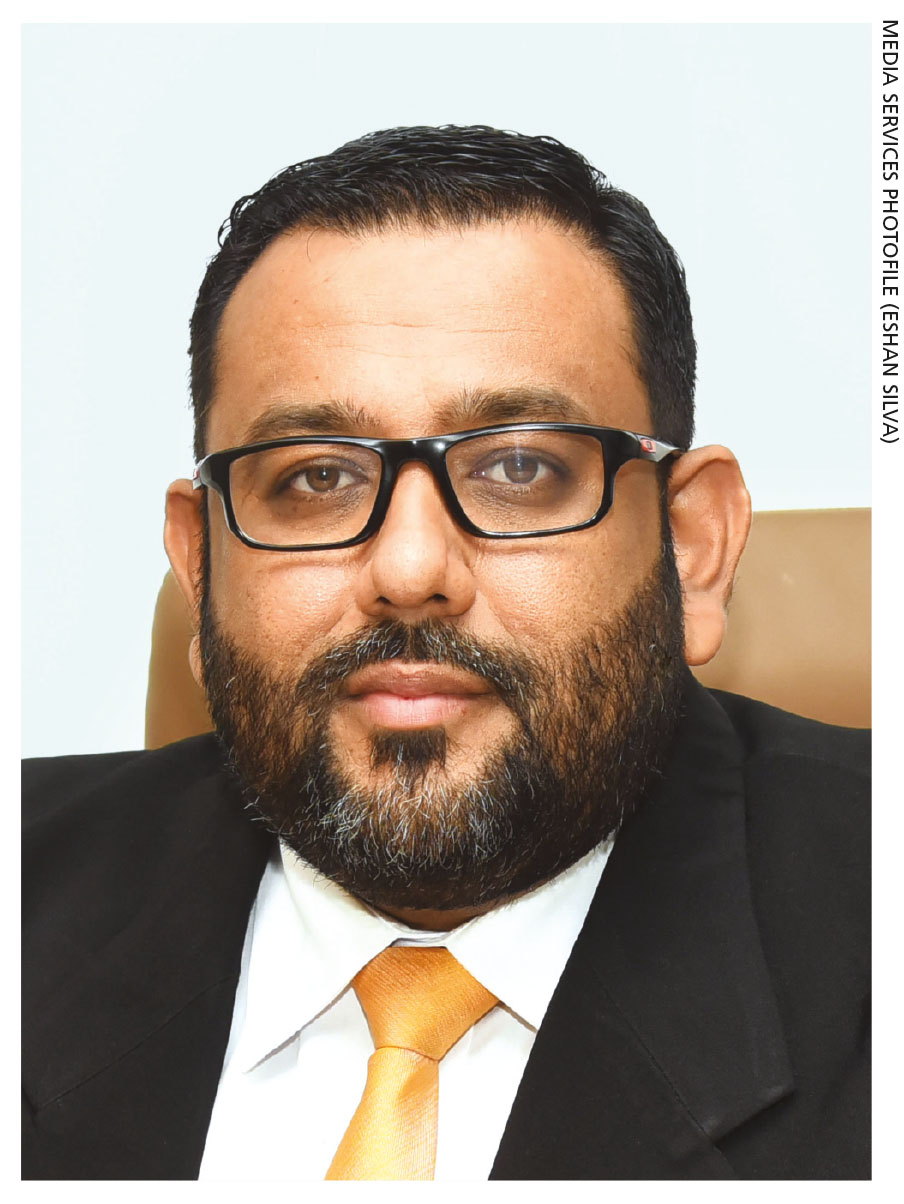AUTOMATION SECTOR

THE FUTURE FAST TRACKED
Ali Asgar Roshanali assesses the impact of the pandemic on automation
Compiled by Sandesh Bartlett
Q: Have the priorities for the office automation sector changed in the wake of the COVID-19 pandemic – and have any facets of the sector changed for the better?
A: Yes, our priorities have changed. As a result of being in the office automation sector – as well as our role as digital print solution providers – our priorities changed almost overnight to coincide with those of customers.
We understood their immediate needs would be to ensure that existing devices continued to be functional and operational rather than investing in new machines.
 Our priorities changed from that of selling to placing more emphasis on supporting customers to service their current machines and help sustain existing business devices. We enhanced our infrastructure to achieve this and installed the latest technology, such as remote printing and online maintenance.
Our priorities changed from that of selling to placing more emphasis on supporting customers to service their current machines and help sustain existing business devices. We enhanced our infrastructure to achieve this and installed the latest technology, such as remote printing and online maintenance.
Moreover, we strengthened our online presence and delivery offering to ensure that customers have access to products when they need them.
Q: How do you view the existing landscape in the sector in the light of the ‘new normal’?
A: Equipment is an essential element of any business and will affect the ability of organisations to function efficiently. Now more than ever before, there’s a genuine interest in office automation. We’ve progressed to having devices in offices that help us communicate and collaborate.
From online document management to approvals and digital workflows – and of course, document security – there has been a general rise in organisations being receptive to doing more with less. Such a change in behaviour will inevitably foster greater adoption of automation tools.
Q: As far as Sri Lanka is concerned, what do you feel the strengths and challenges of the office automation sector are?
A: Perhaps the main strength of this sector is the flexibility of organisations to seek solutions through technology to meet requirements as and when the environment changes. Given the present situation, office automation can ease collaborative pressures.
The most glaring challenge facing this sector is the myopic mindset of some consumers. They attempt to measure every step forward in terms of rupees and cents, without seeing the ultimate savings and cost benefits that technology can provide in the long run by optimising workflows.
So it’s becoming difficult to introduce new technology to the sector as acceptance is purely based on cost.
Q: Could you outline the challenges that businesses in this sector face and the resulting risks, if any?
A: Another challenge is that Sri Lanka is being treated as a dumping ground for the West and our people are willing to accept low price secondhand equipment. Standards are lacking in such devices and as a result, they pose harmful health and environmental risks.
Q: Are Sri Lanka’s state and private sectors aligned for this transformation?
A: While it may seem that Sri Lanka has been a little backward in adapting to new technologies, encouraging strides have been taken to embrace digitalisation in the state sector in recent times.
At the beginning of last year, President Gotabaya Rajapaksa unveiled his digitalisation policy to enable state institutions to function more effectively. Therefore, the impetus to adopt automation is present and the pandemic has only hastened that sense of urgency.
Q: What does the future hold for the office automation sector?
A: The pandemic has made us weigh the role that offices will play with several schools of thought prevailing.
One such thought process is that prior to the pandemic, offices played an integral role in modern life – they weren’t simply places packed with devices, people and technology; they were active hubs of idea generation, collaboration and networking too.
So while automation has meant that working from home (WFH) is far less of a challenge, one wonders whether some of these changes can become permanent – and whether this would mean the end of the office as we know it.
In this instance, it is safe to say that since people are social beings, they will continue to gather for work. However, the time spent working together will see the most significant cultural shift.
Q: In the light of the above, how do you see the traditional office of the future?
A: Given that they enjoy social interaction, people will find new ways of collaborating either by maintaining an office or some sort of hub that promotes limited interaction. Some believe that a corporate head office may become a status symbol for companies that continue to have a budget to warrant this visible presence. Headquarters could also become a means to recruiting talented staff in the future.
Q: And finally, what lessons have been learned from the pandemic and where do you see the benefits accruing from for the office automation sector?
A: Ultimately, the COVID-19 pandemic will enable businesses that are willing to learn and adapt to automation to improve their operational efficiency.
While certain sectors of the economy will be hard hit, enterprises that are willing to adapt to change could see some real benefits in the area of office automation in the future.




Leave a comment